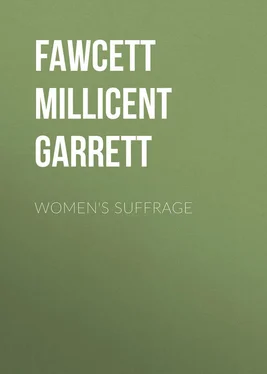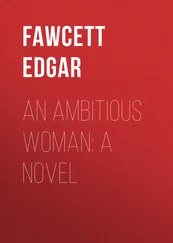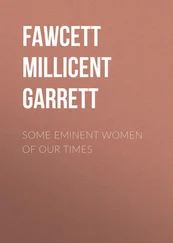Millicent Fawcett - Women's Suffrage
Здесь есть возможность читать онлайн «Millicent Fawcett - Women's Suffrage» — ознакомительный отрывок электронной книги совершенно бесплатно, а после прочтения отрывка купить полную версию. В некоторых случаях можно слушать аудио, скачать через торрент в формате fb2 и присутствует краткое содержание. Издательство: Иностранный паблик, Жанр: foreign_antique, foreign_prose, на английском языке. Описание произведения, (предисловие) а так же отзывы посетителей доступны на портале библиотеки ЛибКат.
- Название:Women's Suffrage
- Автор:
- Издательство:Иностранный паблик
- Жанр:
- Год:неизвестен
- ISBN:нет данных
- Рейтинг книги:3 / 5. Голосов: 1
-
Избранное:Добавить в избранное
- Отзывы:
-
Ваша оценка:
- 60
- 1
- 2
- 3
- 4
- 5
Women's Suffrage: краткое содержание, описание и аннотация
Предлагаем к чтению аннотацию, описание, краткое содержание или предисловие (зависит от того, что написал сам автор книги «Women's Suffrage»). Если вы не нашли необходимую информацию о книге — напишите в комментариях, мы постараемся отыскать её.
Women's Suffrage — читать онлайн ознакомительный отрывок
Ниже представлен текст книги, разбитый по страницам. Система сохранения места последней прочитанной страницы, позволяет с удобством читать онлайн бесплатно книгу «Women's Suffrage», без необходимости каждый раз заново искать на чём Вы остановились. Поставьте закладку, и сможете в любой момент перейти на страницу, на которой закончили чтение.
Интервал:
Закладка:
This essay, with its clear, pointed, and epigrammatic style, produced a great effect on the more cultivated section of public opinion. If Mrs. Mill had lived longer she would probably have inaugurated the practical organisation of a women's enfranchisement movement, but she died in the autumn of 1858. What her death meant to her husband he has left on record in glowing and touching words, and in his loneliness he endeavoured "because she would have wished it," to make the best of what life was left to him, "to work on for her purposes with such diminished strength as could be derived from thoughts of her and communion with her memory." [14] Autobiography , p. 241.
Shortly before the general election of 1865 Mr. Mill was invited by a considerable body of electors of the Borough of Westminster to offer himself as a candidate. In reply he made the plainest possible statement of his political views, including his conviction that women were entitled to representation in Parliament. It was the first time that women's suffrage had ever been brought before English electors, and the fact that after having announced himself as strongly in favour of it Mr. Mill was elected, gave a place to women's suffrage in practical politics.
The situation in Parliament, as regards Parliamentary Reform, at the time of Mr. Mill's election was very like what it is now in respect of women's suffrage. Parliament had been playing with the subject for a great many years. Reform Bills had been introduced, voted for, and abandoned again and again. The real reformers were growing impatient. I, myself, heard John Bright say about this time or a little later that he began to think the best way of carrying a Reform Bill was to tell working men that "a good rifle could be bought for £2." Candidates who stood for election pledged themselves to Parliamentary Reform, but year after year went by and nothing was done. Each party brought forward Reform Bills, but neither party really wished to enfranchise the working classes. Before 1867 the total electorate only numbered a little over one million voters. The Reform Bill of 1867 more than doubled this number. It is not in human nature for members of Parliament really to like a very large increase in the number of their constituents. Besides the extra trouble and expense involved, there was in 1865 another deterrent – terror. Those who held power feared the working classes. Working men were supposed to be the enemies of property, and working men were in an enormous numerical majority over all other classes combined. "You must not have the vote because there are so many of you" was a much more effective argument when used against working men than it is when used against women; because the working classes are fifteen or sixteen times more numerous than all other classes combined, whereas women are only slightly in excess of men. [15] The census of 1911 shows that the excess of women over men is in the proportion of 1068 women to 1000 men, and that this proportion has changed but little during the last hundred and ten years.
On one excuse or another the Reform Bills constantly brought before Parliament were dropped or burked in one of the thousand ways open to the experienced Parliamentarian for getting rid of measures which he has to appear to support, but to which he is in reality opposed. The time had come, however, after 1865, when it became apparent that the game was up, and that a Reform Bill would have to be passed. It was to this Parliament that Mill was elected, and in which in 1867, as an amendment to the Reform Bill, he raised the question of the enfranchisement of women. His motion was to omit the word "man" and insert the word "person" in the enfranchising clause. Of this he says himself that it was by far the most important public service that he was able to perform as a member of Parliament. Seventy-three members voted with him and 196 against him; with the addition of pairs and tellers the total number supporting women's suffrage was over 80. This amount of support surpassed all expectations. Before the debate and division it was uncertain whether women's suffrage would command more than a few stray votes in the House. Mr. Mill's masterly speech, grave and high-toned, made a deep impression. Perhaps the thing that pleased him most was the fact that John Bright voted with him. He was known to be an opponent of women's suffrage, but he was fairly won over by the force of Mill's speech. Those who watched him sitting in the corner seat of the front row on the left-hand side of the Speaker, just below Mr. Mill, saw his whole expression and demeanour change as the speech proceeded. His defiant, mocking expression changed to one that was serious and thoughtful; no one but Mill ever had the moral and mental strength to wrestle with him again successfully. It was the first and last time he ever gave a vote for women's suffrage.
It is an oft-told tale how in the previous year a little committee of workers had been formed to promote a Parliamentary petition from women in favour of women's suffrage. It met in the house of Miss Garrett, (now Mrs. Garrett Anderson, M.D.), and included Mrs. Bodichon, Miss Emily Davies, Mrs. Peter Taylor, Miss Rosamond Davenport Hill, and other well-known women. They consulted Mr. Mill about the petition, and he promised to present it if they could collect as many as a hundred names. After a fortnight's work they secured 1499, including many of the most distinguished women of the day, such as Mrs. Somerville, Frances Power Cobbe, Florence Nightingale, Harriet Martineau, Miss Swanwick, Mrs. Josephine Butler, Lady Anna Gore Langton, Mrs. William Grey. In June 1866 Miss Garrett and Miss Emily Davies took the petition down to the House, entering by way of Westminster Hall. They were a little embarrassed by the size of the roll in their charge, and deposited it with the old apple-woman, who hid it under her stall. The ladies did not know how to find Mr. Mill, when at that moment Mr. Fawcett passed through Westminster Hall and at once offered to go in search of him. Mr. Mill was much amused on his arrival when he found the petition was hidden away under the apple-woman's stall; but he was greatly delighted by the large number of names which had been obtained, and exclaimed, "Ah, this I can brandish with great effect." [16] Record of Women's Suffrage , by Helen Blackburn, pp. 53, 54, 55.
It was in 1867 that the Reform Bill was carried, and Mr. Mill's Women's Suffrage Amendment defeated on May 20th. The testing of the actual legal effect of the passing of the Bill upon the political status of women (already described in Chapter I.) took place in 1868. These events caused a great deal of thought and discussion with regard to women's position in relation to the State and public duties in general; and it is as certain as anything which is insusceptible of absolute proof can be, that to the interest excited by the claim of women to the Parliamentary vote was due the granting to them of the Municipal Franchise in 1869; and also that in 1870, when the first great Education Act was passed, they were not only given the right to vote for members of School Boards, but also the right to be elected upon them. At the first School Board election, which took place in London in November 1870, Miss Elizabeth Garrett, M.D., and Miss Emily Davies were returned as members. Miss Garrett was at the head of the poll in her constituency – Marylebone. She polled more than 47,000 votes, the largest number, it was said at the time, which had ever been bestowed upon any candidate in any election in England. In Manchester Miss Becker was elected a member of the first School Board, and was continuously re-elected for twenty years, until her death in 1890. In Edinburgh Miss Flora Stevenson was elected to the first School Board, and was continuously re-elected for thirty-three years until her death in 1905. From the date of her election she was appointed by her colleagues to act as convener of some of their most important committees, and in 1900 was unanimously elected the chairman of the board; she retained this most honourable and responsible post until the end of her life.
Читать дальшеИнтервал:
Закладка:
Похожие книги на «Women's Suffrage»
Представляем Вашему вниманию похожие книги на «Women's Suffrage» списком для выбора. Мы отобрали схожую по названию и смыслу литературу в надежде предоставить читателям больше вариантов отыскать новые, интересные, ещё непрочитанные произведения.
Обсуждение, отзывы о книге «Women's Suffrage» и просто собственные мнения читателей. Оставьте ваши комментарии, напишите, что Вы думаете о произведении, его смысле или главных героях. Укажите что конкретно понравилось, а что нет, и почему Вы так считаете.












